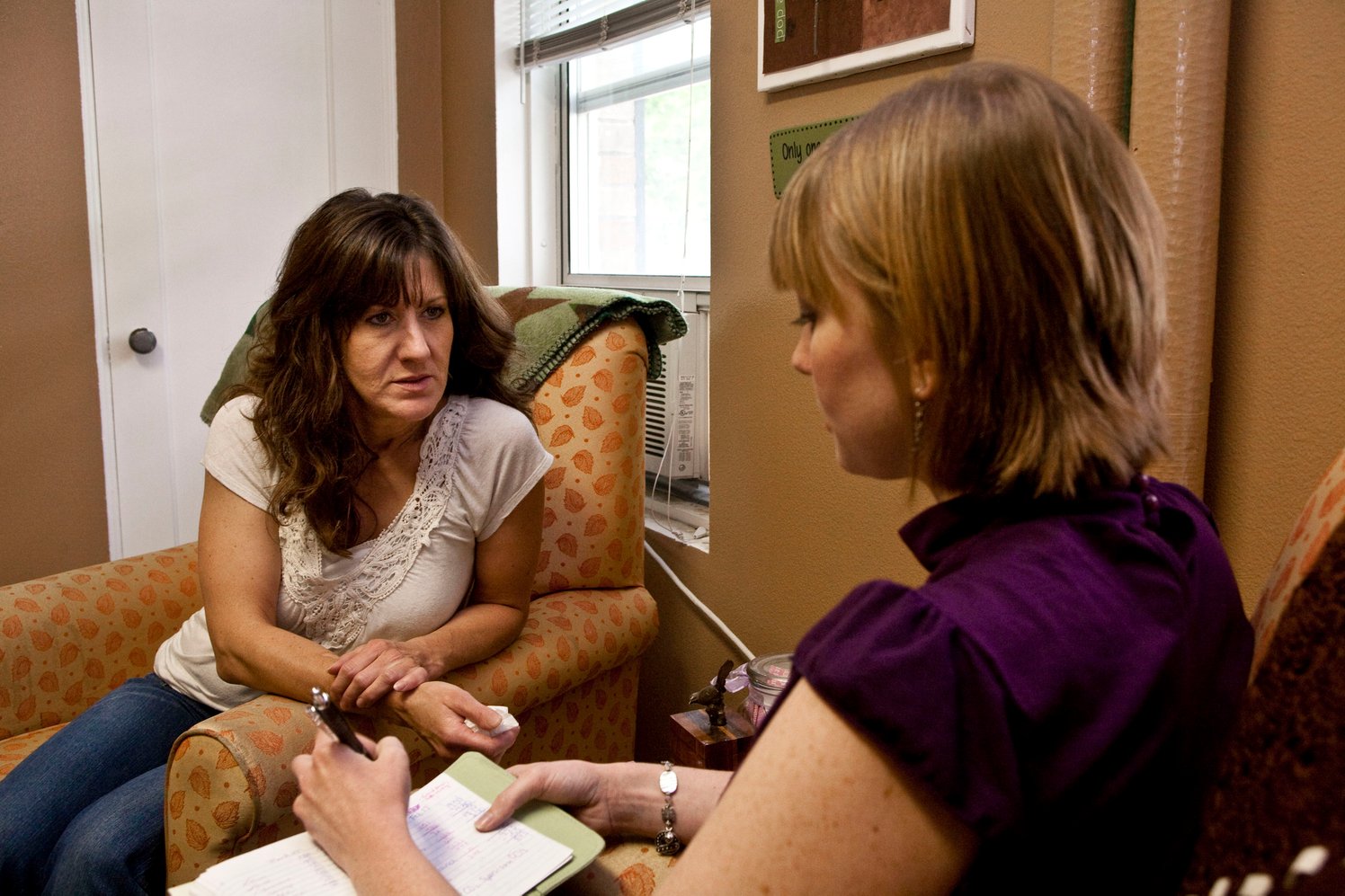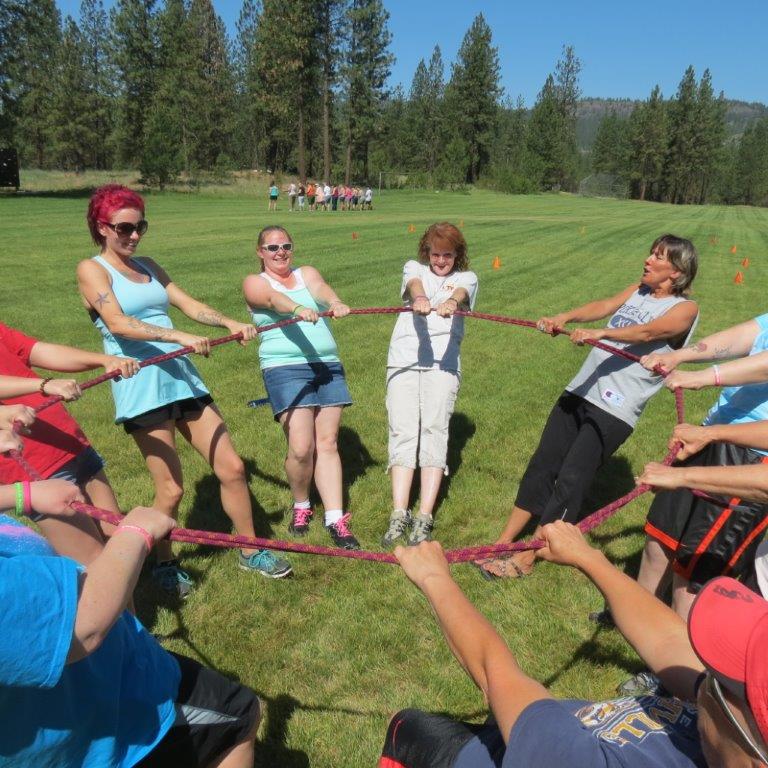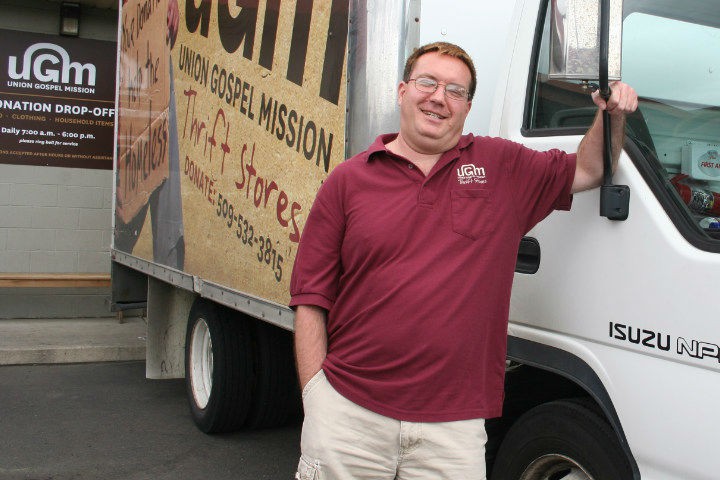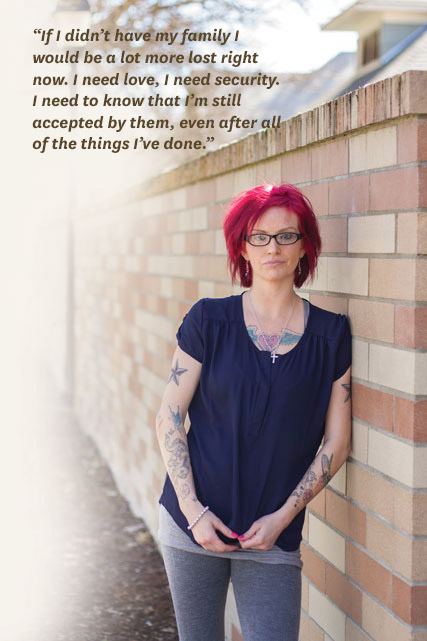2 min read
Gospel-Centered from the Start
“Let us hold unswervingly to the hope we profess, for He Who promised is faithful…Jesus Christ is the same yesterday, today, and forever.” (Hebrews...
By Jina Doggett, Director of Women's Recovery at Anna Ogden Hall
Addiction and recovery affect not only individuals, but family and friends. Oftentimes, a co-dependent relationship forms when a parent, spouse or sibling struggles with addiction.
Codependency is a term which describes a relationship in which one person enables and the other controls. Someone who is co-dependent may be excessively reliant upon a family member or friend.
It is for this reason that developing a relapse, early intervention plan is not only necessary for the person with an addiction, but also their friends and family members to ensure that, in the event of a relapse, they do not relapse back into co-dependency.
To develop a relapse, early intervention plan, you can do the following:
Have a plan. That way, if you start thinking enabling or co-dependent thoughts, feelings or behaviors that would cause you to overreact, just follow the plan. This may include calling a sponsor, mentor, counselor or pastor. Also, attending a support group meeting for co-dependency, such as Al-Anon, Nar-Anon, Celebrate Recovery or Fortress, is a helpful tool to gain additional support. Write out your plan BEFORE the relapse occurs.
 Establish support. Loss of control is a typical symptom of relapse. This is accompanied by an inability to regulate thinking, judgment and behavior. When co-dependents relapse, they fall back into old patterns of thought, feeling or action. It is important that you establish a support system to help you recognize these warning signs and help you get back on track. Ask yourself and write down how others can assist you or motivate you to stop the relapse process.
Establish support. Loss of control is a typical symptom of relapse. This is accompanied by an inability to regulate thinking, judgment and behavior. When co-dependents relapse, they fall back into old patterns of thought, feeling or action. It is important that you establish a support system to help you recognize these warning signs and help you get back on track. Ask yourself and write down how others can assist you or motivate you to stop the relapse process.
Prepare your support. Denial is the hallmark sign of co-dependency. When we are actively enabling others, we typically will rationalize and justify our behaviors. This can often times sabotage the efforts of others trying to help you. The next question to ask yourself is how can your support system effectively help you stop enabling, even if you try to refuse their help? Write down the plan for each person in your support system.
It is especially beneficial to ask these questions of the person you are in the primary co-dependent relationship with. When you have a relapse, early intervention plan written out, share copies of it with your support system so that they can hold you accountable. Without accountability, we are only as strong in our recovery as we've been so far.
Below is a list of some family tools for recovery.
1) Attend support groups regularly and get involved.
2) Remember HALT—do not let yourself get too hungry, angry, lonely or tired.
3) Use the Serenity Prayer.
4) Be active, not idle.
5) Remember, progress not perfection.
6) Convey your resentments.
7) Get out of the “If only” trap.
8) Practice controlling your anger.
9) Pray often.
10) Be aware of your emotions.
11) Help someone else in their recovery from co‐dependency.
12) Work daily to be God-dependent, not others dependent.
13) Practice an attitude of gratitude.
14) Live TODAY, not yesterday and not tomorrow.
15) Remember to work on YOUR program, not theirs.
16) Practice humility.
17) Find a sponsor or a mentor, and use them.
18) Maintain physical, emotional, mental and spiritual balance.
19) Stay in recovery for you, not someone else.
20) Rejoice in your new life.

Jina is the Director of Women's Recovery at Anna Ogden Hall and is a state certified Chemical Dependency Professional as well as a nationally certified Addiction Counselor. She has a heart for women struggling with addiction and desires to help them see themselves as Christ sees them.
To learn more about relapse and recovery, sign up to receive our upcoming newsletter!

2 min read
“Let us hold unswervingly to the hope we profess, for He Who promised is faithful…Jesus Christ is the same yesterday, today, and forever.” (Hebrews...

9 min read
To celebrate 75 years of serving the Inland Northwest, we are spending the year remembering our history and the faithfulness that built us and...

2 min read
In 2026, Union Gospel Mission Inland Northwest is approaching our 75th Anniversary! This is a milestone that invites gratitude and reflection, and...

Sean Stevens graduated from the Men’s Recovery Program in 2011 and is working as the donations driver for the Union Gospel Mission Thrift Store in...

IN HER PURSUIT OF PLEASURE, Rachel lost her joy. Disillusioned with the church, she ran away from God and became disconnected from family. “In the...